What Neurodiversity Reveals About the Evolution of Human Intelligence
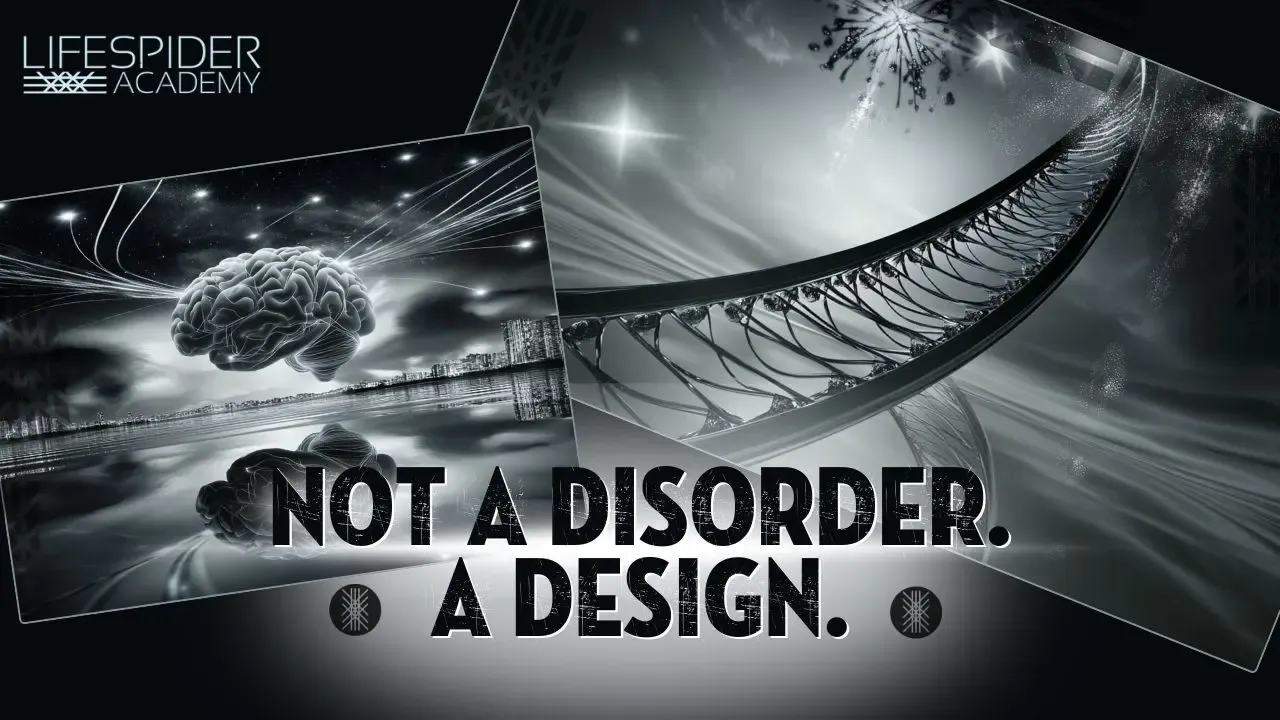
We've been asking the wrong question for decades. Instead of wondering what's wrong with neurodivergent individuals, we should be asking: what's right with them—and why have these traits lasted for thousands of years? From ADHD to autism to dyslexia, the growing body of genetic and evolutionary research suggests that these neurological variations aren't flaws. They're features. Embedded in our DNA, carried across generations, and crucial to our survival as a species, neurodiversity holds the key to understanding how human intelligence evolved—and why our definition of "normal" may be dangerously outdated.
Maybe You're Not Disordered—Maybe You're Evolved
If ADHD is 80% genetic—and autism 80–90%—how can we keep pretending these are errors? Source
How do we go from pathologizing diversity to acknowledging evolution?
The more we learn, the clearer it becomes: neurodivergence is not a medical mistake. It's the echo of human adaptability, the imprint of survival strategies carved into our DNA. Traits like impulsivity, hyperfocus, pattern recognition, or emotional sensitivity weren't invented in the modern era—they were selected for generation after generation. And not just for ADHD—but across the full spectrum of what we've labeled as disorders: autism, dyslexia, bipolar, Tourette's. All show strong genetic roots. All expressing variations in cognition that once helped communities thrive.
I. "The Hunter vs. the Farmer"—and the Power of Misfits
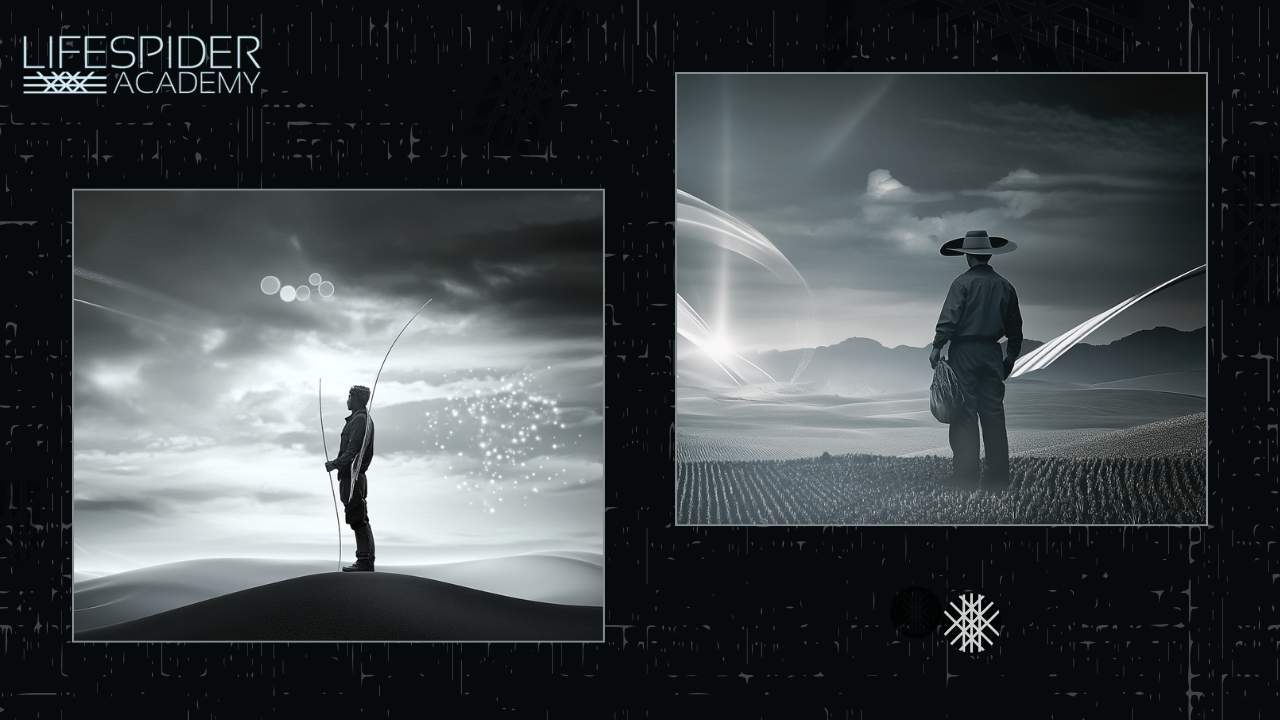
Let's go back in time.
Before spreadsheets and school bells, humans were hunters, gatherers, and explorers. We needed people who could notice everything, react fast, chase down ideas (or animals), and follow sparks of intuition others missed. People with ADHD traits were essential. So were those with autistic characteristics, who could detect patterns, build tools, track stars, and remember details others forgot. (Source
We didn't need one type of mind. We needed many.
Then came agriculture—then industry—then bureaucracy. Systems that favor order, routine, and compliance. The "farmer brain" thrived. The "hunter brain" was labeled difficult. The creative mind became disobedient. The divergent thinker became disordered.
But let's get one thing straight: society didn't outgrow these traits. It just stopped understanding them.
The Weird Ones: Why I Don't Use the Old Labels
I choose to use The Weird Ones because labels like ADHD, autism, dyslexia, OCD, feel like a box. A diagnosis. A trap. However, genetic and evolutionary research show there's an overlap. Shared genes, traits, and wiring. It's not a set of isolated disorders—it's a spectrum of divergent intelligences.
When you realize that, you know we're not "sick." We're specialists. A society obsessed with conformity misreads evolutionary assets.
So instead of breaking us into smaller and smaller categories, I unite us under one: The Weird Ones. The ones who see the world sideways. The ones who feel too much, think too fast, and move too differently. Not because we're broken—but because we're ahead.
The Real Disorder? A System That Can't Evolve.
If ADHD is a mismatch between the brain and the environment, maybe it's the environment that needs a diagnosis.
When a school demands stillness from a child with a movement-based brain, the system, not the student, is failing.
When a workplace punishes someone for needing stimulation and variety instead of recognizing their creative agility, that's a lack of vision, not discipline.
We keep pathologizing people for not fitting in when what we should be doing is rebuilding the systems so that more kinds of minds can thrive.
II: Coaching for the Evolved Mind: A New Blueprint for The Weird Ones

If our wiring is the result of human evolution—not human error—then coaching must evolve, too.
Traditional coaching models often assume a linear path: set a goal, create a plan, and follow the steps. But that doesn't work for The Weird Ones. We don't operate in straight lines—we operate in spirals, webs, bursts, and waves. Our minds thrive on intensity, impulse, insight, and interconnection.
That's why coaching for the neurodivergent can't just be adapted—it has to be reimagined.
From Fixing to Unleashing
Most systems are built on the assumption that something about you needs to be corrected. Coaching for The Weird Ones is built on the assumption that something about you needs to be unleashed.
When we stop trying to fix "disorders" and start decoding inner drive, passion, and complexity, we unlock real transformation. Coaching becomes less about managing symptoms—and more about mastering intentions, energy, and identity.
This is where LifeSpider Coaching comes in.
Instead of making people choose one path, it helps them embrace their six directions. Instead of taming intensity, it teaches them how to surf it. Instead of minimizing the ego, it helps align it with purpose. And instead of forcing people to settle down, it dares them to rise.
A System for the Specialists
Your brain is not generalist hardware. It's specialist tech.
That means coaching should help you:
- Map your multi-dimensional drivers (not reduce you to one goal)
- Channel your impulses into breakthroughs (not suppress them)
- Find your natural rhythm (not follow productivity hacks made for farmer's brains)
- Trust your chaos (because chaos often holds genius)
- Use AI as a partner, not a replacement (co-creating with tech, not conforming to it)
Coaching for The Weird Ones isn't about helping you cope with a disorder.
It's about helping you lead a revolution—starting from within.
III Redefining Success and Society Through Neurodiverse Leadership
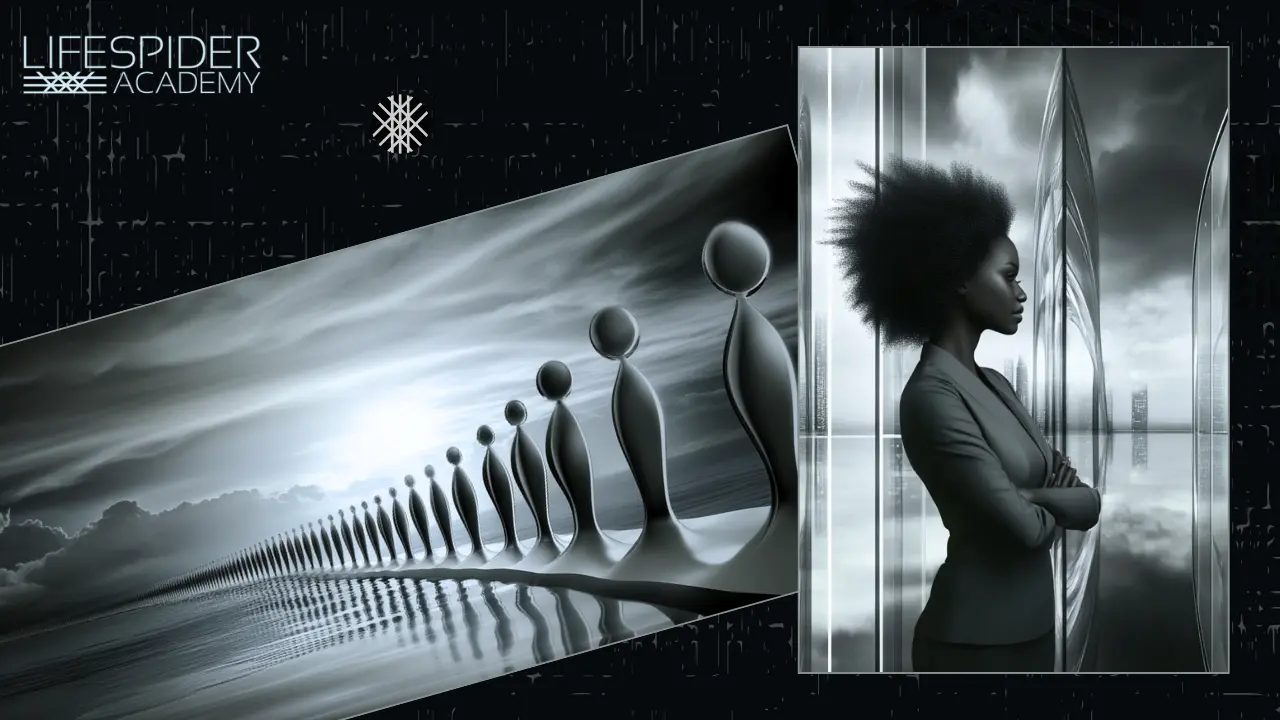
The Future Needs a Different Kind of Leader
We're entering a time when the world's biggest problems—climate change, inequality, AI ethics, mental health, education—can't be solved by conventional thinking. We need minds that are wired differently. Brains that connect dots others can't even see. People who've never quite fit in, because they weren't meant to.
The Weird Ones were never meant to follow. They're here to lead.
But here's the catch: many still don't realize it.
Years of being labeled disordered, difficult, or disruptive have left too many brilliant individuals doubting themselves. Questioning their impulses. Suppressing their instincts. Trying to fit into systems they were actually born to change.
We're Not Just Reframing Neurodiversity. We're Redesigning the Future.
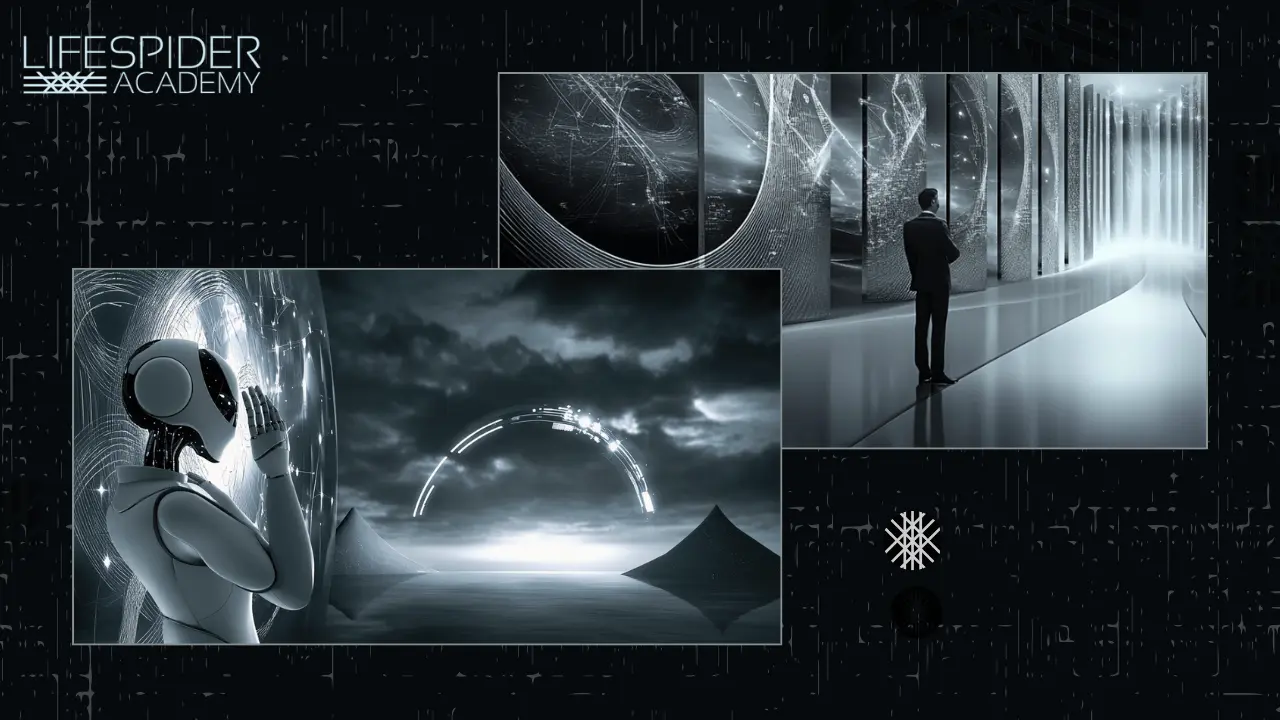
When you see neurodivergence not as a limitation but as a form of leadership intelligence, everything changes.
- ADHD isn't a distraction—it's pattern detection and dynamic action.
- Autism isn't detachment—it's depth, precision, and system thinking.
- Dyslexia isn't dysfunction—it's visual-spatial genius and non-linear innovation.
These aren't glitches in the system. They're upgrades for a world that's breaking apart.
What we call neurodivergent may be future-adapted.
Hence, the Weird Ones must rise both as individuals and as leaders of a new paradigm. They must reshape the rules, not conform to them. They must show the way, not ask for permission.
Are You One of the Weird Ones?
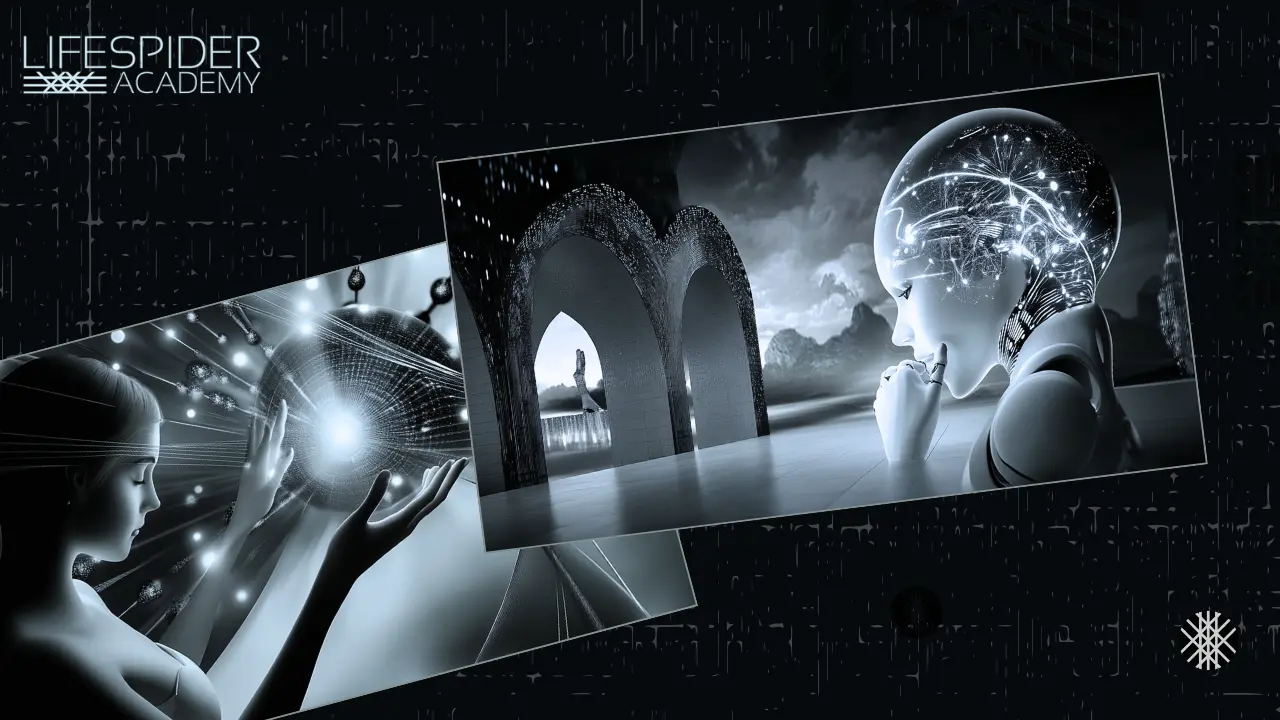
If this post spoke to something deep inside you—something you've always known but never had words for—maybe you're not broken. Maybe you're built for more.
You don't need to fix your brain. You need to understand it.
You don't need a treatment plan. You need a life strategy.
That's what we do at LifeSpider Academy.
If you're ready to stop fighting your wiring and start leading with it, explore coaching for the evolved mind—powered by the LifeSpider System and designed for The Weird Ones who are here to shape the future.
👉 Join the Movement,
👉 Learn More About LifeSpider Coaching,
👉 Become a certified coach for The Weird Ones.
🧠 Author's Note
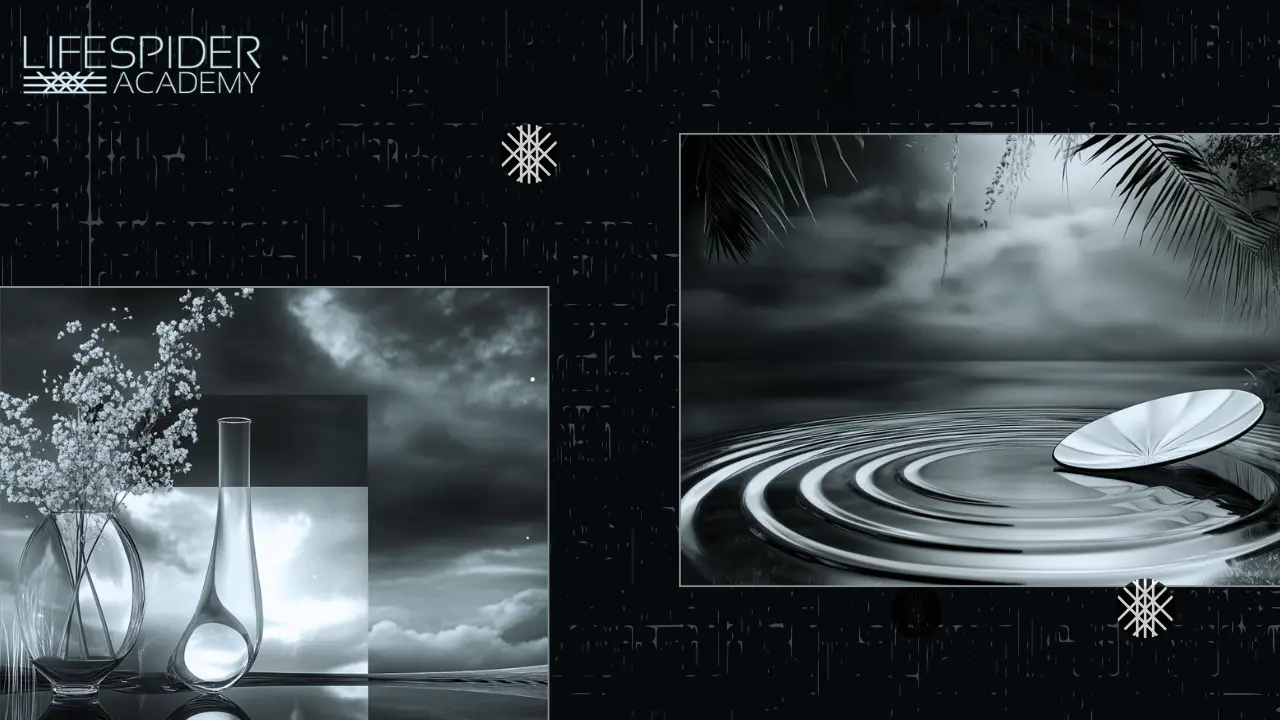
The ideas in this post weren't pulled from a textbook—they've emerged from years of working with neurodivergent individuals, leading The Weird One's community, and creating the LifeSpider System—a life management framework designed around how non-linear minds actually function.
These patterns came from lived observation, deep intuitive knowing, and watching what happens when people stop trying to fit into a mold and start operating from their true design.
But in seeking to validate what I've seen and felt, I've discovered that science is starting to catch up. So, if you have experience, insights, or research to add, please share your knowledge. Recommend readings, reports, or papers to help us all evolve together.
This isn't just my theory. It's our future.
Birgitta Granstrom
Founder of LifeSpider System & Your Navigator in The Web of Weird
This post is also featured in my LinkedIn newsletter, "It's All About Life Competencies."
Subscribe to LifeSpider News, a publication focusing on Personal Evolution, Future Leadership, and empowerment to manifest your ideas that contribute to a better world. It is designed for "The Weird Ones," who have the potential to make a significant change and solve urgent global problems.






